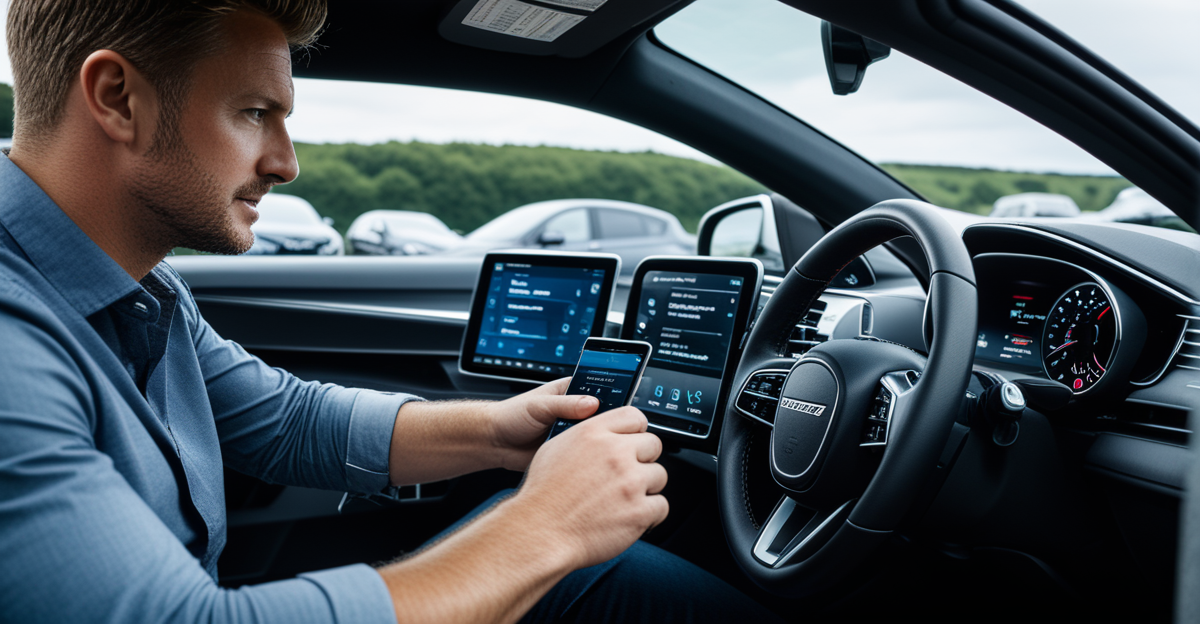Major trends in digital transformation within the UK automotive sector
Digital transformation trends are fundamentally reshaping the UK automotive industry, driving automotive innovation forward at an unprecedented pace. One of the most significant trends is the widespread adoption of cloud computing, big data analytics, and connected vehicle technologies, enabling manufacturers to enhance product development cycles and customer engagement.
Key drivers behind digital transformation include the need for increased operational efficiency, regulatory compliance, and meeting evolving consumer expectations, such as demand for electric and autonomous vehicles. The sector is also witnessing a shift towards data-driven decision-making, where insights gathered from sensors and telematics inform production and service strategies.
Also read : How Can the UK’s Automotive Innovations Shape the Future of Global Transportation?
Industry-wide changes are evident in how automotive operations are managed. For instance, agile supply chain management and real-time inventory tracking have become critical. Additionally, manufacturers are integrating digital platforms to optimize manufacturing processes and improve collaboration across different departments.
In summary, the UK automotive industry is embracing digital transformation trends that emphasize automation, connectivity, and data utilization, positioning itself to compete globally while addressing sustainability and innovation challenges. This evolution continues to redefine traditional automotive innovation paradigms.
Additional reading : What are the benefits of connected car technology for UK consumers?
Impact of advanced technologies on UK automotive manufacturing
The UK automotive manufacturing sector is rapidly evolving due to the integration of AI in automotive, automation, and Internet of Things (IoT in manufacturing). Factories increasingly deploy AI-powered systems for predictive maintenance, defect detection, and process optimisation. These technologies reduce downtime and improve product quality by allowing machines to self-monitor and adapt in real-time.
Automation streamlines repetitive tasks, boosting production speed while maintaining consistent standards. For example, robotic arms handle complex assembly with precision, enabling faster throughput without compromising quality. IoT devices, embedded throughout manufacturing lines, provide continuous data streams. This connectivity enables granular monitoring, inventory management, and instant reaction to system anomalies.
The key benefits include enhanced efficiency, reduced operational costs, and higher product reliability. In practice, several UK manufacturers have adopted these advanced tools to successfully cut waste and accelerate time-to-market. By leveraging the synergy of AI, IoT, and automation, the UK automotive industry positions itself at the forefront of automotive innovation, securing competitive advantage through smarter, more agile manufacturing processes. This digital transformation trend is vital for meeting growing consumer demand and regulatory pressure while maintaining productivity at scale.
Major trends in digital transformation within the UK automotive sector
Digital transformation trends in the UK automotive industry focus heavily on integrating connected technologies and data analytics across all operational areas. Current adoption of digital technologies includes cloud platforms that enable real-time data sharing and AI-driven tools to forecast market demands with precision.
Key driving forces behind these digital transformation trends are the urgent need for increased operational efficiency, stricter regulatory compliance, and the rising consumer expectation for smarter, eco-friendly vehicles. For example, manufacturers increasingly rely on data to optimise production schedules and enhance quality control measures, significantly reducing waste and delays.
Industry-wide shifts impact how automotive operations are managed. Agile supply chains enabled by digital monitoring tools allow faster response to disruptions, while cross-departmental collaboration benefits from integrated digital workflows. This creates a more resilient and adaptive UK automotive sector, fostering continuous automotive innovation. The convergence of these trends establishes a robust foundation for long-term competitiveness on the global stage.
Major trends in digital transformation within the UK automotive sector
Digital transformation trends in the UK automotive industry increasingly focus on integrating advanced digital technologies that revolutionise every phase of automotive innovation. Current adoption sees a surge in cloud computing platforms, AI-driven analytics, and connected vehicle systems as core tools. These technologies enable manufacturers to harness vast data sets, improving predictive maintenance, vehicle performance, and customer insights.
Key driving forces behind digital transformation include operational efficiency demands, stringent environmental regulations, and the evolving consumer preference for electric and autonomous vehicles. For example, AI algorithms analyse production data to forecast demand and optimise inventory, reducing waste and delays. Embracing sustainability goals also propels digital tool adoption to comply with emissions standards.
Industry-wide shifts are redefining automotive operations. Digital workflows foster agile supply chains and enhance cross-departmental collaboration, enhancing responsiveness amidst market fluctuations. Real-time telemetry and telematics integration enable continuous feedback loops from vehicles to manufacturers, accelerating product development cycles and aftermarket innovation.
Overall, these digital transformation trends position the UK automotive sector as a dynamic, data-driven industry focused on agility, sustainability, and meeting future mobility challenges through cutting-edge automotive innovation.
Major trends in digital transformation within the UK automotive sector
Digital transformation trends in the UK automotive industry predominantly involve the expansion of connected technologies, cloud computing, and AI-powered analytics. Current adoption focuses on leveraging these tools to gain real-time insights, optimise production schedules, and enhance vehicle performance. For example, cloud platforms collect and process data from connected vehicles to improve predictive maintenance and customer service.
Key driving forces for digital transformation include rising consumer demand for electric and autonomous vehicles, stricter environmental regulations, and the pursuit of operational efficiencies. Manufacturers respond by embedding AI to analyse vast data streams, enabling smarter decision-making and reduced waste. These trends align with broader goals of sustainability and enhanced automotive innovation.
Industry-wide shifts impact how operations are managed. Agile, digitally enabled supply chains allow rapid response to supply disruptions. Integrated digital workflows enhance cross-departmental collaboration, improving overall responsiveness and quality control. Additionally, telematics and IoT devices gather continuous feedback, helping manufacturers iterate designs and services faster.
Together, these digital trends establish a new paradigm for the UK automotive sector, blending advanced digital transformation trends with traditional manufacturing strengths to foster resilience and global competitiveness.
Major trends in digital transformation within the UK automotive sector
Digital transformation trends in the UK automotive industry centre on the accelerated deployment of connected technologies, AI-powered analytics, and cloud computing platforms. These tools enable manufacturers to collect and analyse vast data streams in real time, enhancing decision-making and driving continuous automotive innovation. For example, AI algorithms optimise production schedules and forecast demand, reducing waste and aligning manufacturing with market needs.
Key drivers of this transformation include rising consumer expectations for electric and autonomous vehicles, stringent environmental regulations, and the imperative to improve operational efficiency. These factors push UK automotive companies towards integrating smart digital solutions throughout their operations to stay competitive and sustainable.
Industry-wide shifts manifest in more agile, digitally enabled supply chains and streamlined cross-departmental workflows. Such integration fosters rapid responses to supply disruptions and enhances collaboration between design, manufacturing, and aftersales teams. Real-time telemetry and telematics from connected vehicles feed back data to manufacturers, accelerating product development and enabling proactive maintenance strategies.
Together, these trends establish a dynamic, responsive, and data-driven landscape for the UK automotive industry, embedding digital transformation at the heart of ongoing automotive innovation and operational refinement.





